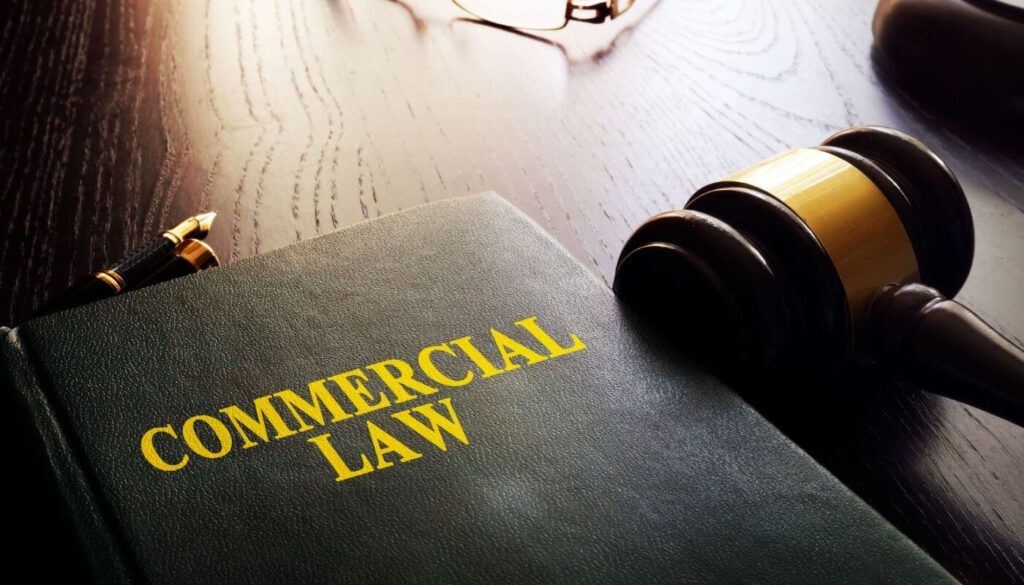In the bustling business environment of Sydney, legal disputes can arise unexpectedly, challenging the stability and growth of companies. Commercial litigation lawyers play a crucial role in navigating these complex situations, ensuring that businesses are protected and their interests are represented. This article delves into the various aspects of commercial litigation, the role of lawyers in this field, and how businesses can effectively manage disputes.
Understanding Commercial Litigation
Commercial litigation refers to the legal disputes that arise in the course of business operations. These disputes can involve a variety of issues, including contract breaches, partnership disagreements, intellectual property disputes, and more. The complexity of commercial litigation often requires specialised legal knowledge and experience, making the role of commercial litigation lawyers indispensable.
Types of Commercial Disputes
Commercial disputes can take many forms, each requiring a tailored approach. Some common types include:
- Contract Disputes: These occur when one party fails to fulfil their obligations under a contract, leading to potential financial losses for the other party.
- Partnership Disputes: Conflicts between business partners can arise over profit sharing, decision-making, or operational control.
- Intellectual Property Issues: Businesses may face challenges related to trademarks, copyrights, and patents, particularly in competitive industries.
- Employment Disputes: Issues between employers and employees regarding contracts, workplace policies, or termination can lead to litigation.
The Importance of Legal Representation
Having experienced commercial litigation lawyer Sydney by your side can make a significant difference in the outcome of a dispute. These professionals not only provide legal advice but also help in:
- Understanding the Legal Framework: Lawyers ensure that businesses are aware of their rights and obligations under the law.
- Negotiation and Settlement: Many disputes can be resolved through negotiation, and skilled lawyers can facilitate this process effectively.
- Litigation Strategy: If a case goes to court, lawyers develop a robust strategy to present the case in the best possible light.
Choosing the Right Commercial Litigation Lawyer
Selecting the right lawyer is crucial for the successful resolution of commercial disputes. Several factors should be considered when making this decision.
Experience and Specialisation
It is essential to choose a lawyer who has extensive experience in commercial litigation and a proven track record in handling cases similar to yours. Specialisation in specific areas of commercial law can also be beneficial, as it ensures that the lawyer is well-versed in the nuances of the relevant legal issues.
Reputation and Client Reviews
Researching a lawyer’s reputation can provide valuable insights into their capabilities. Client reviews, testimonials, and case studies can help gauge the lawyer’s effectiveness and reliability. Additionally, seeking recommendations from other business owners or professionals in your network can lead to finding a reputable lawyer.
Communication and Accessibility
Effective communication is vital in any legal matter. A good lawyer should be approachable, willing to listen to your concerns, and able to explain complex legal concepts in understandable terms. Accessibility is also important; you want a lawyer who is readily available to address your queries and provide updates on your case.
The Litigation Process
The litigation process can be lengthy and complex, often involving several stages. Understanding these stages can help businesses prepare for what lies ahead.
Initial Consultation
The first step in the litigation process typically involves an initial consultation with a commercial litigation lawyer. During this meeting, the lawyer will assess the details of the dispute, provide preliminary advice, and discuss potential strategies for resolution.
Pre-Litigation Steps
Before formal litigation begins, there are often pre-litigation steps that can be taken. These may include:
- Negotiation: Attempting to resolve the dispute amicably through discussions with the other party.
- Mediation: Involving a neutral third party to facilitate a resolution.
- Demand Letters: Sending a formal letter outlining the dispute and the desired resolution.
Filing a Lawsuit
If pre-litigation efforts fail, the next step is to file a lawsuit. This involves submitting a complaint to the court, outlining the claims against the other party. The defendant will then have the opportunity to respond, leading to the discovery phase.

Discovery Phase
The discovery phase is critical in litigation, as both parties gather evidence to support their claims. This may involve:
- Document Requests: Requesting relevant documents from the opposing party.
- Interrogatories: Sending written questions that must be answered under oath.
- Depositions: Conducting sworn testimonies from witnesses or involved parties.
Trial and Resolution
If the dispute is not resolved through negotiation or settlement, the case will proceed to trial. During the trial, both parties present their evidence and arguments before a judge or jury. Following the trial, a verdict is reached, and the court may issue a judgement. Depending on the outcome, there may be options for appeal. Click here to learn about Business Lawyers in Sydney: your partners in legal and commercial success.
Cost Considerations in Commercial Litigation
Understanding the costs associated with commercial litigation is essential for businesses. Legal fees can vary significantly based on the complexity of the case, the lawyer’s experience, and the duration of the litigation process.
Types of Legal Fees
Commercial litigation lawyers may charge in several ways:
- Hourly Rates: Many lawyers charge by the hour, which can lead to unpredictable costs depending on the time spent on the case.
- Fixed Fees: For certain services, lawyers may offer a fixed fee arrangement, providing clarity on costs upfront.
- Contingency Fees: In some cases, lawyers may work on a contingency basis, meaning they only get paid if you win the case.
Budgeting for Litigation
Businesses should budget for potential litigation costs, considering not only legal fees but also other expenses such as court fees, expert witness fees, and costs associated with gathering evidence. Having a clear understanding of these costs can help businesses make informed decisions about pursuing or settling disputes.
Preventing Commercial Disputes
While disputes are sometimes unavoidable, there are proactive measures businesses can take to minimise the risk of litigation.
Clear Contracts
Drafting clear and comprehensive contracts is crucial in preventing misunderstandings that can lead to disputes. Contracts should outline the rights and obligations of all parties, as well as procedures for resolving conflicts.
Regular Communication
Maintaining open lines of communication with partners, employees, and clients can help identify potential issues before they escalate into disputes. Regular meetings and updates can foster a collaborative environment where concerns can be addressed promptly.
Dispute Resolution Clauses
Incorporating dispute resolution clauses in contracts can provide a framework for resolving conflicts without resorting to litigation. Options such as mediation or arbitration can save time and costs while preserving business relationships.

Conclusion
Commercial litigation is an intricate field that requires specialised knowledge and expertise. Engaging the services of experienced commercial litigation lawyers in Sydney can significantly impact the outcome of legal disputes. By understanding the types of disputes, the litigation process, and how to prevent conflicts, businesses can navigate the complexities of commercial law with confidence. In a dynamic business environment, being prepared for potential disputes is essential for long-term success.



